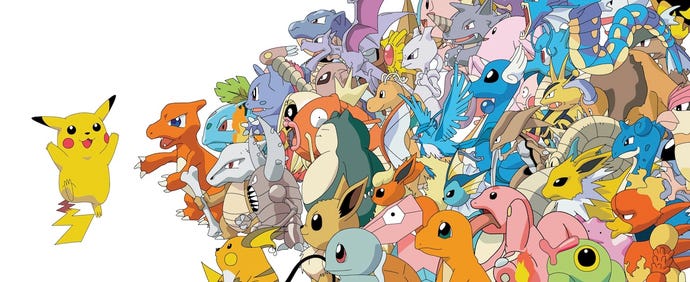My Life as a Pokémon Trafficker
Eurogamer's Rich Stanton describes the strange effect Pokémon had on him as a player.
This article first appeared on USgamer, a partner publication of VG247. Some content, such as this article, has been migrated to VG247 for posterity after USgamer's closure - but it has not been edited or further vetted by the VG247 team.
This is about how your goal in a game can change. Where you find something self-contained within it that becomes your focus, rather than going to town Y to complete quest X. It's about how I played Pokémon Black to a certain point as a trainer and then, independently of the game's arc and pretty much accidentally, started shipping out battery-farmed Pokémon to trainers around the world.
It couldn't have happened with any other game -- not just in terms of the specifics, but the personal history you sometimes build with a series. One of the criticisms of Nintendo with a grain of truth is that the company relies overly on established franchises and models. This is particularly true of Pokémon which, until this year's X&Y at least, has remained more or less identical since its Gameboy debut in the late 90s.
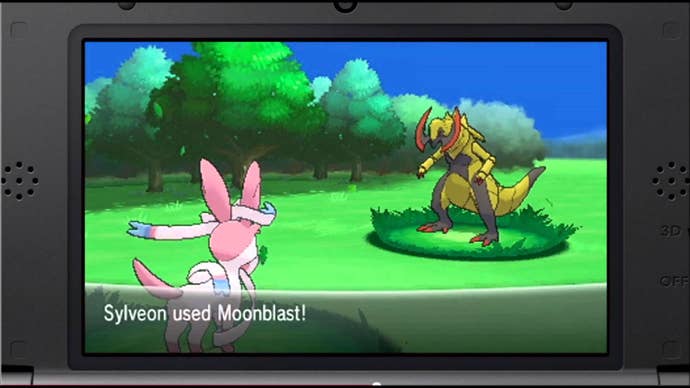
The point of Pokémon is to become the very best, like no-one ever was. What this means every time is you begin as a novice trainer with a single 'starter' Pokémon and have to defeat eight gym leaders to earn the right to take on the Elite Four -- beat them, and you're a Pokémon master. I've done it seven times over the years, and you're damn right I'm proud.
Few games could bear such repetition, but Pokémon feels ageless and somehow still vital. The truth is that as your interest in the game grows, so does your understanding of the foundations -- the stats, for want of a better word -- that introduce new objectives of their own. It's a design where the layers can bear intense scrutiny, and eventually swallow you whole.
But before we get too high-falutin', it's also mostly about playing and trading with your mates; especially when there's a new one out. In the weeks after Black's release I worked alongside a few fellow trainers, and the number one request? Everyone wanted the original starter Pokémon, from way back in Red/Green. Bulbasaur, Charmander, and Squirtle were the sepia-tinted dream ticket.
Thanks to importing from older games I had the lot, and so started to look into breeding. This isn't a new feature in Pokémon, and in Black it's simple. You leave a male and female variety of the same Pokémon in the Day Care Centre, pop back later and find an egg, then carry it around until it hatches. I had a male and female Bulbasaur, so bred a few baby ones to give away. Innocent enough. Soon I'd be hatching ten Bulbasaurs an hour, minimum, among so many others.
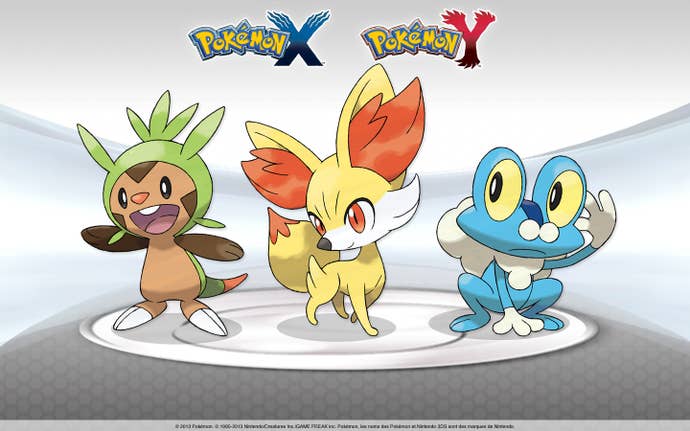
What changed things was discovering about the particular traits of a Pokémon I'd never paid much attention to in the past. Ditto's schtick is that it is genderless and has one move -- 'transform' -- which makes it mimic any Pokémon it faces in battle. It turns out this skill has somewhat saucier applications.
You can breed a Ditto with almost anything and you'll get a Pokémon egg. Which means, if you have one, you'll only ever need one parent to breed Pokémon. Ditto had become the holy grail, and my collective focus moved to bagging one by any means.
A few days later, in global trading, a Japanese trainer made my wish come true. A legit Ditto, with its name in kanji and everything. Or in other words, infinite Pokémon eggs. Soon enough, anyone I knew who wanted a starter Pokémon was sorted. I had Squirtles coming out of my ears.
It wasn't enough; hunting down Ditto had given me a taste for global trading. I'd trade with anyone, and soon enough I noticed something. In these early days it wasn't just people I knew who were desperate for starter Pokémon, but every trainer around the world. And what makes Pokémon trading fun is, oddly enough, Game Freak and Nintendo's paranoia about online features in a children's game -- Pokémon understandably wants to keeps players at arms' length.
To this end you can only communicate with four symbols; a smiley face, a sad face, a heart, and an exclamation point. This is the heart of, to give it the full honorific, Pokémon GTS Negotiations. First you'd put up Squirtle. Exclaim exclaim heart heart! Smiley? Charmander got even more exclamations even quicker. By the time I whacked Bulbasaur up there (there are three trade slots, too perfect) I often got the impression the other trainer's touchscreen was about to crack from all the hearts.
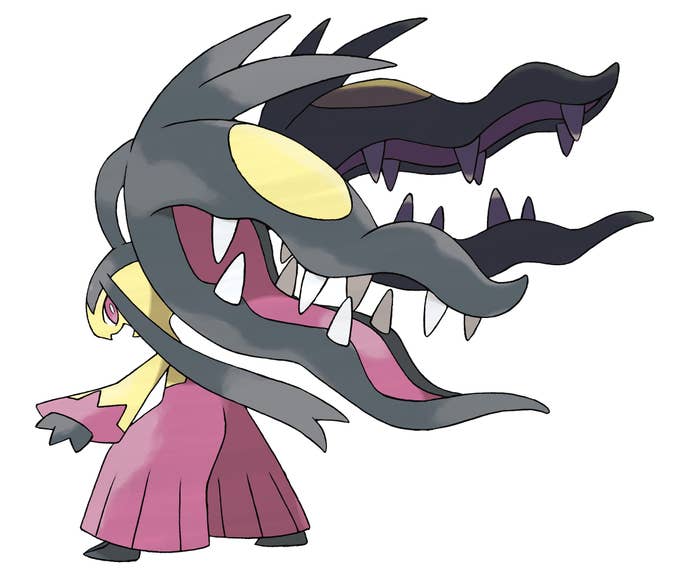
More often than not, the Pokémon these trainers had to offer in return were junk -- to a pro like me, anyway. And it's not that hard to get a hold of a Charmander if you really want one. Which combined in my head into the realization that these trainers were probably kids, after which I'd trade the full set away for any offer.
For this I needed a lot of Pokémon. I'd got hold of Ditto to cut corners, but now had somehow built a system. I'd drop off a new stud Pokémon at the Day Care Centre every ten minutes, squeezing maximum efficiency from that poor Ditto's glands. I must have bred the poor thing with everything from dragons to insects to flame-breathing warthogs.
Then I'd ride back and forth over the Unova region's enormous bridges, carrying five eggs and a candle Pokémon (to warm them), praying I didn't get into a fight. The bike riding music basically replaced the overworld theme. I'd hatch 30 baby Pokémon an hour, at least, and had entire storage boxes filled with level one Bulbasaurs. It was a setup that that needed so little attention I'd read a book at the same time, before going online and doling out Charmanders.
I did this most days for about a month, and was never short of takers. Soon I realised this was scratching a personal itch from much older games, when all I'd wanted was those exact Pokémon -- and it was always such a pain to get the set. They were always priority number one, and now I was in a position with infinite supply. These trainers I was trading with didn't have a clue, they hadn't min-maxed over multiple games, and they certainly didn't have a Ditto doing the business back home.
I loved how excited the other trainers were to get those Pokémon; it felt like being Santa Claus and Professor Oak at the same time. It's perhaps slightly crazy to think one can judge genuine excitement from abstract symbols like smileys, hearts and exclamation points -- but that's what the cascade of bleeps and bloops always seemed like to me. After the trade they'd go even more mental. This childish excitement, however it's filtered, gets to the very heart of why Pokémon is a classic.
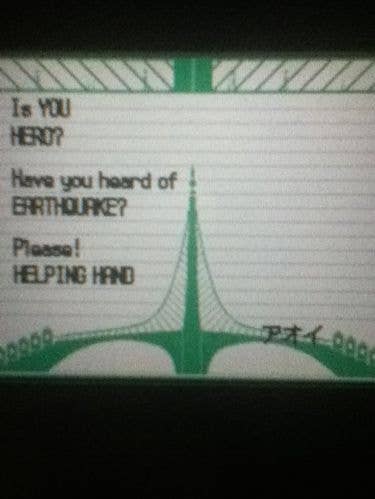
I was no boy naturalist, unlike Pokémon creator Satoshi Tajiri -- whose collecting habits earned him the nickname Dr Bug among friends. And yet I vividly remember catching my first tadpole in a Golden Wonder crisp packet, then cradling this sloppy pouch all the way home to a sluiced-out jam jar. When you know Tajiri wanted to make a game to communicate his joy in catching insects as a boy, and look at Pokémon, it is impossible not to feel how powerfully he succeeded.
Games and their critics are often waylaid by the idea of the big theme -- our equivalent of the Great American Novel is the Game That Makes You Cry. And games can do that, sure, and it's no ignoble aim. For me Pokémon does something much more special. Everything about it is pocket-sized, and focussed on the emotion of a specific experience. Whatever else Pokémon does, and it does much more, it zeroes in on the feelings of that child with the crisp packet -- the plan, the trap, the lunge! -- and catches 'em all.
After beating the eight gym leaders in any Pokémon there's a choice. Do you go on to building up a competitive team, and smashing the true endgame? Been there, done it. Bag the legendaries? Sure. But this time around I got hold of Ditto and made up a game of my own.
To this day I've never finished Pokémon Black. I dug out the cart this week to visit the breeding centre and trading stations one last time. I've given away so many Pokémon that you come to instinctively know their value -- and Ditto has always been a big one. You can always tell when trainers spam the exclaim button.
When you trade a Pokémon the whole process takes maybe a minute. The Pokémon is shown for one last time, text comes up saying goodbye, and then it's in the Pokéball and off to the other trainer. I'm probably not going to play Pokémon Black again so, about three years too late, I traded away Ditto to someone who really wanted it. In the Pokédex that lists all of these fantastical monsters Ditto is number #132: "It has the ability to reconstitute its entire cellular structure into whatever it sees." I've always thought about Ditto as a blank slate. But really, if you look close, it's a mirror.
